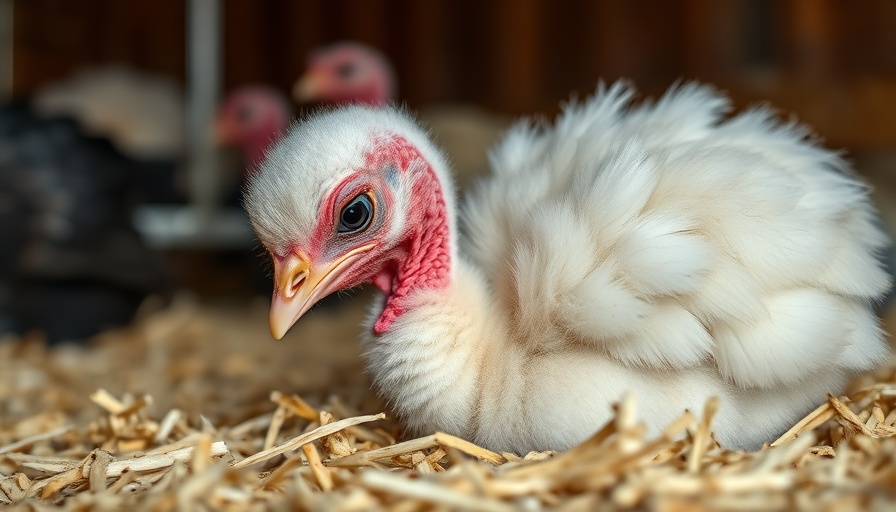
Understanding Pecking Behavior Among Young Poults
At three weeks old, poults exhibit a range of social behaviors as they establish their pecking order. This stage can be crucial for their development but may also lead to instances of aggressive behavior such as pecking one another. Such behavior, while concerning for caretakers, often reflects natural instincts at play as they organize their social structure.
The Importance of Observation
Caregivers should closely observe their poults' interactions. Frequent pecking can indicate stress or competition for resources such as food, water, or space. Ensuring that poults have ample access to these resources can mitigate aggressive behaviors. Adequate space in their living environment can also support positive interactions among the birds, preventing dominance hierarchies from becoming too aggressive.
Strategies to Minimize Aggression
There are several strategies that poultry owners can use to reduce aggressive pecking:
- Ensure Proper Nutrition: Balanced diets promote overall well-being, reducing stress and competition at feeding times.
- Provide Enrichment: Offering diverse materials for pecking, such as grains scattered on the floor, can distract the poults and foster natural foraging behaviors.
- Monitor Heat and Light: Ensuring that the environment is comfortably warm and well-lit can lower stress levels in young birds.
Seeking Veterinary Insight
If aggression escalates or injuries occur, consulting an avian veterinarian is crucial. They can provide insights into potential underlying issues, including health problems that may contribute to stress-related behaviors. Prompt intervention can ensure the health and well-being of your flock.
 Add Row
Add Row  Add
Add 




 Add Row
Add Row  Add
Add 

Write A Comment